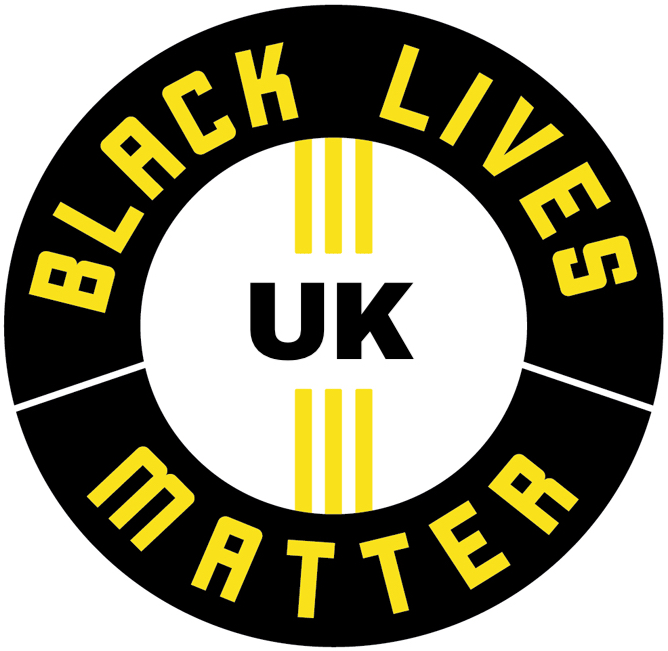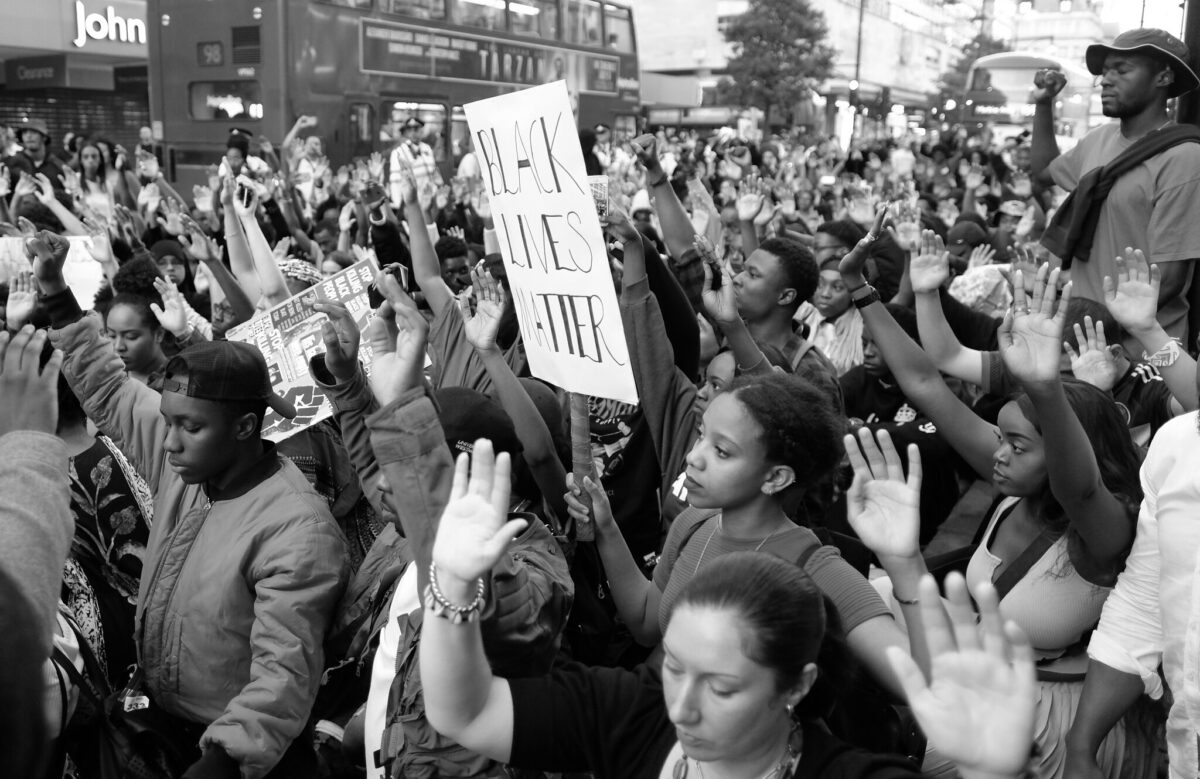Rest in power, George Floyd.
Today marks one year since George Floyd was murdered by the Minneapolis police. Floyd’s death – brought about as an officer named Derek Chauvin kneeled on his neck for nine and a half minutes – was not the first time people around the world saw racist police violence brought to our social media feeds. But what resulted were the largest anti-racist protests the world has seen since the 1960s. Across the globe, and in the midst of a pandemic, demonstrators put their bodies on the line to resist state violence, with many being subject to brutalisation as they protested.
A year on from Floyd’s murder, we want to recognise the tragedy of his death, and also the powerful global response. Millions of people participated in weeks of tireless protest. Millions of pounds were also raised in bail funds for protestors – an acknowledgement of the importance of mutual aid in the face of state violence. And Black Lives Matter UK specifically received over 1.2 million pounds in donations, £600,000 have since been ringfenced to go to grassroots groups working towards our collective liberation. None of this would have been possible without the spirit and solidarity of anti-racists, tired of violence and suffering.
It has been a busy year for BLM UK as an organisation. We registered as a community benefit society, and began the process of distributing the funds we raised last year. So far, £169,500 in total has already been released to A Tribe Named Athari, Justice For Black Lives, All Black Lives, The Northern Police Monitoring Project, Sistah Space, African Rainbow Family, Acts of Love, AZ Magazine, Abahlali, Sindicato de Manteros de Madrid, United Friends and Families Campaign, and B’ME Cancer Communities. Another £440,500 will be distributed later this year. Conscious of our place in a broader social movement, we have also been organising and coalition-building with other groups that share our aims to enact transformative social change – including Sisters Uncut, Gypsy, Roma and Traveller Socialists, Disabled People Against Cuts and Women’s Strike Assembly.
Although the movement has picked up speed in the last year, our broader demands are far from being realised. After the protests of last summer, some saw the increased media attention surrounding the issue of racism and the conviction of Derek Chauvin as conclusive wins, but these were never the primary goals of Black Lives Matter. ‘Awareness’ without material change is simply not enough. We also don’t want to individualise the problem to ‘bad apples’ that need to simply be thrown out. Instead, we must meaningfully address the rot that goes all the way to the bottom of the barrel – and the racism that is found across our society.
In the last year, the picture has only worsened for Black people in the UK. The government’s mishandling of the Covid-19 pandemic has directly led to the disproportionate deaths of Black people. Under the home secretary, the border regime continues to become increasingly violent, with a new plan for immigration that would attempt to distinguish between ‘good’ and ‘bad’ asylum seekers. The government continues to doggedly pursue the expansion of prisons and detention centres, which will disproportionately lock up Black people. Government guidance introduced in September warned teachers against using materials from Black Lives Matter or promoting ‘victim narratives’ in schools. And we now face a struggle to defeat the dystopian Police, Crime, Sentencing and Courts Bill – which, if passed, will expand Stop and Search, increase surveillance under Prevent, and also target Gypsy, Roma and Traveller communities. Despite all this, a recent government report into racial disparity, commissioned as a result of last summer’s seismic protests, concluded that the UK is not institutionally racist.
The work is far from done. That’s why we continue to call for the funding of Black futures, the transformation of our racist education system, actions that would protect the most vulnerable from Covid-19, an end to the hostile environment and border controls, and the defunding of the police. It is also more vital than ever that our movement looks beyond the UK, and towards international solidarity – standing with our siblings in Palestine, Colombia, Tigray, Kashmir, and across the globe.
A different world is possible. And it is urgently necessary that, in the face of ever-increasing state violence, we continue to imagine and work towards that liberated future. Black lives matter now, and they always will. The struggle must continue.
Image by Alisdare Hickson

